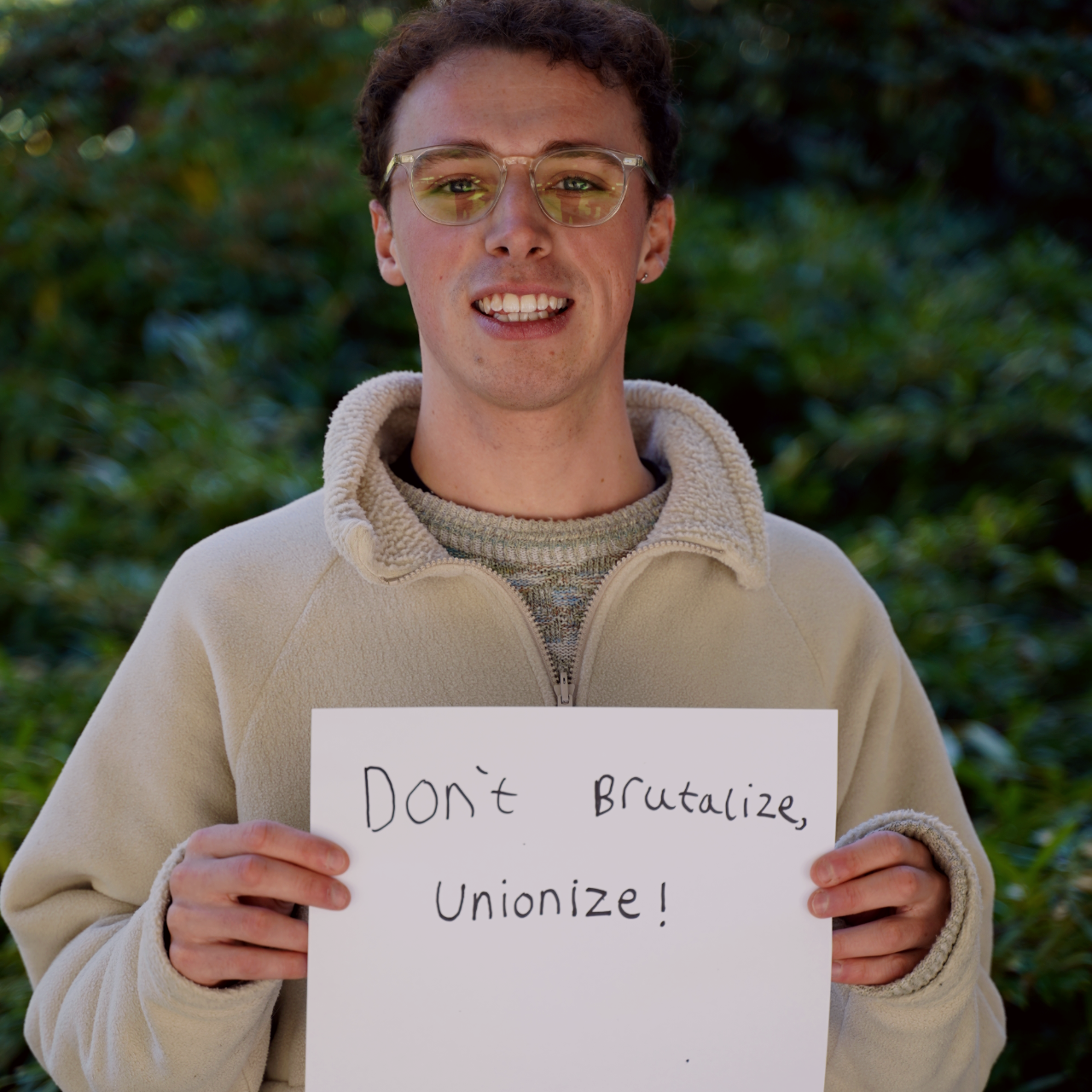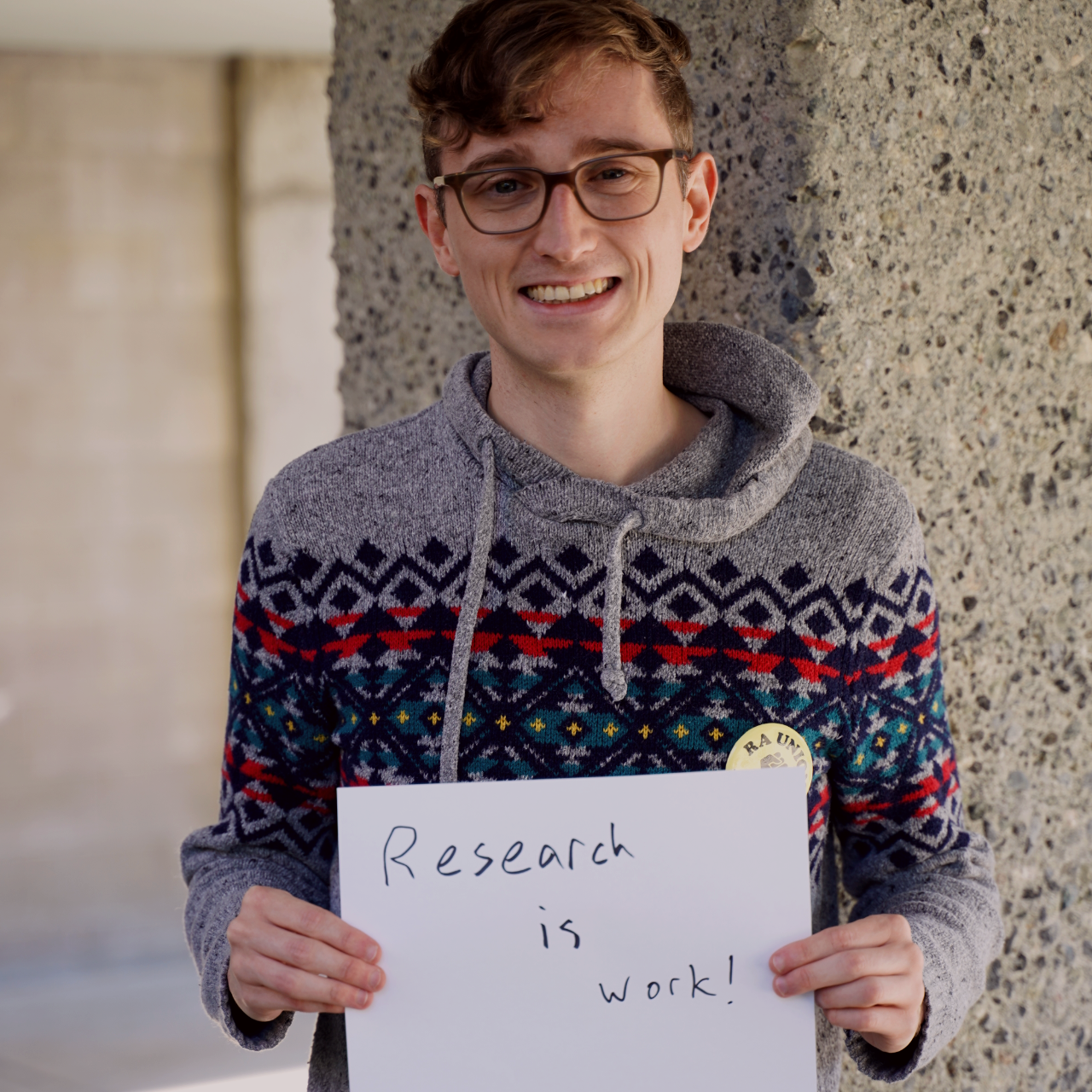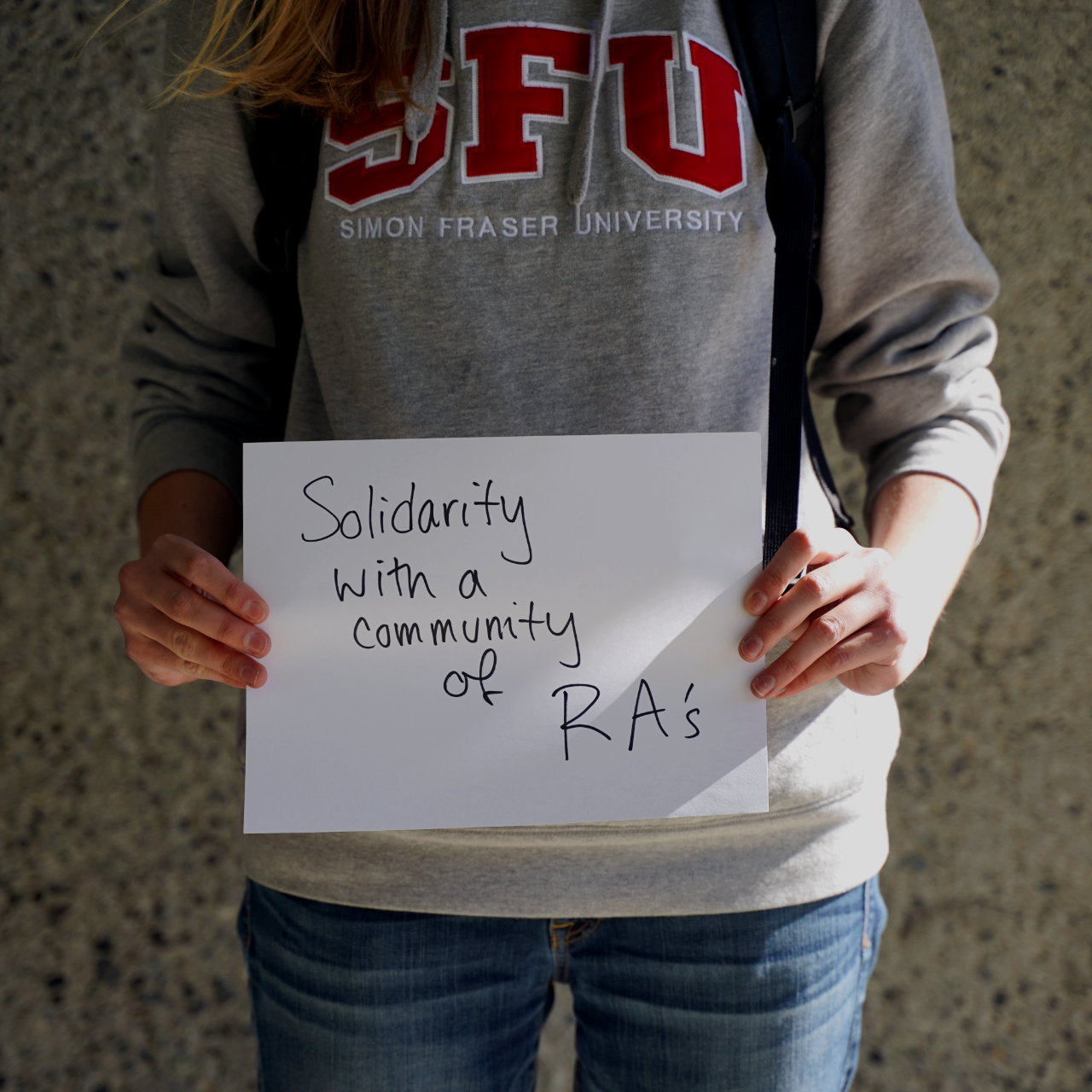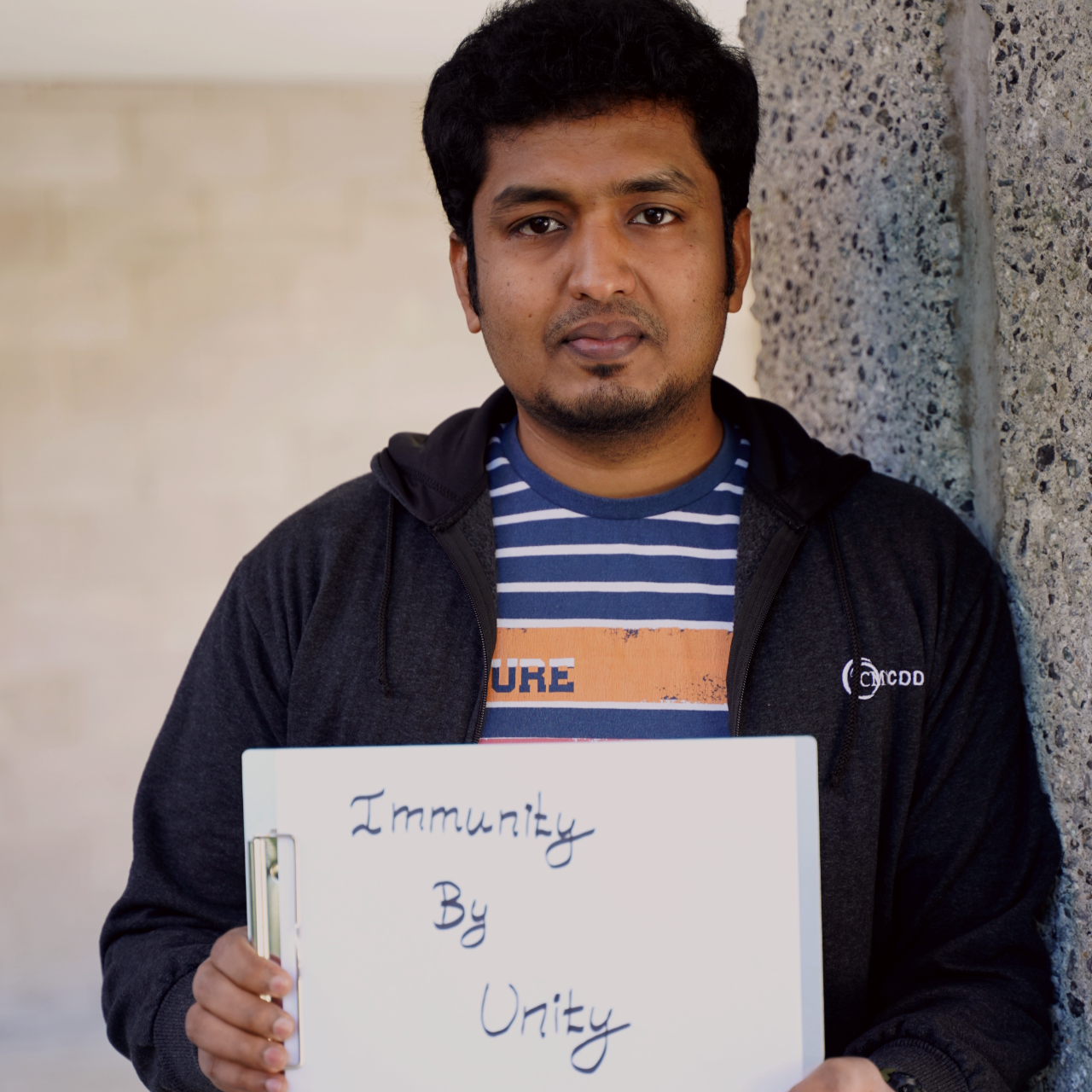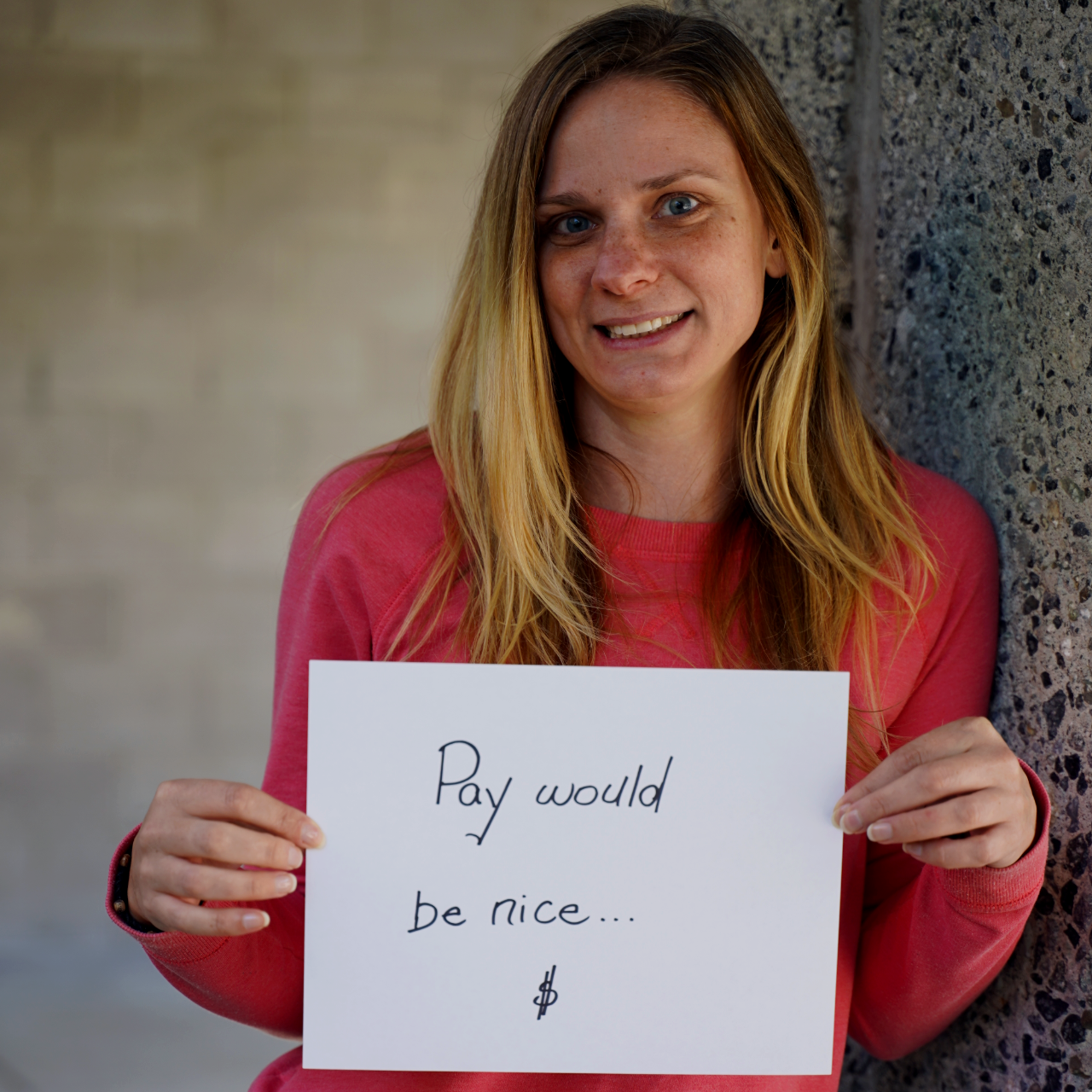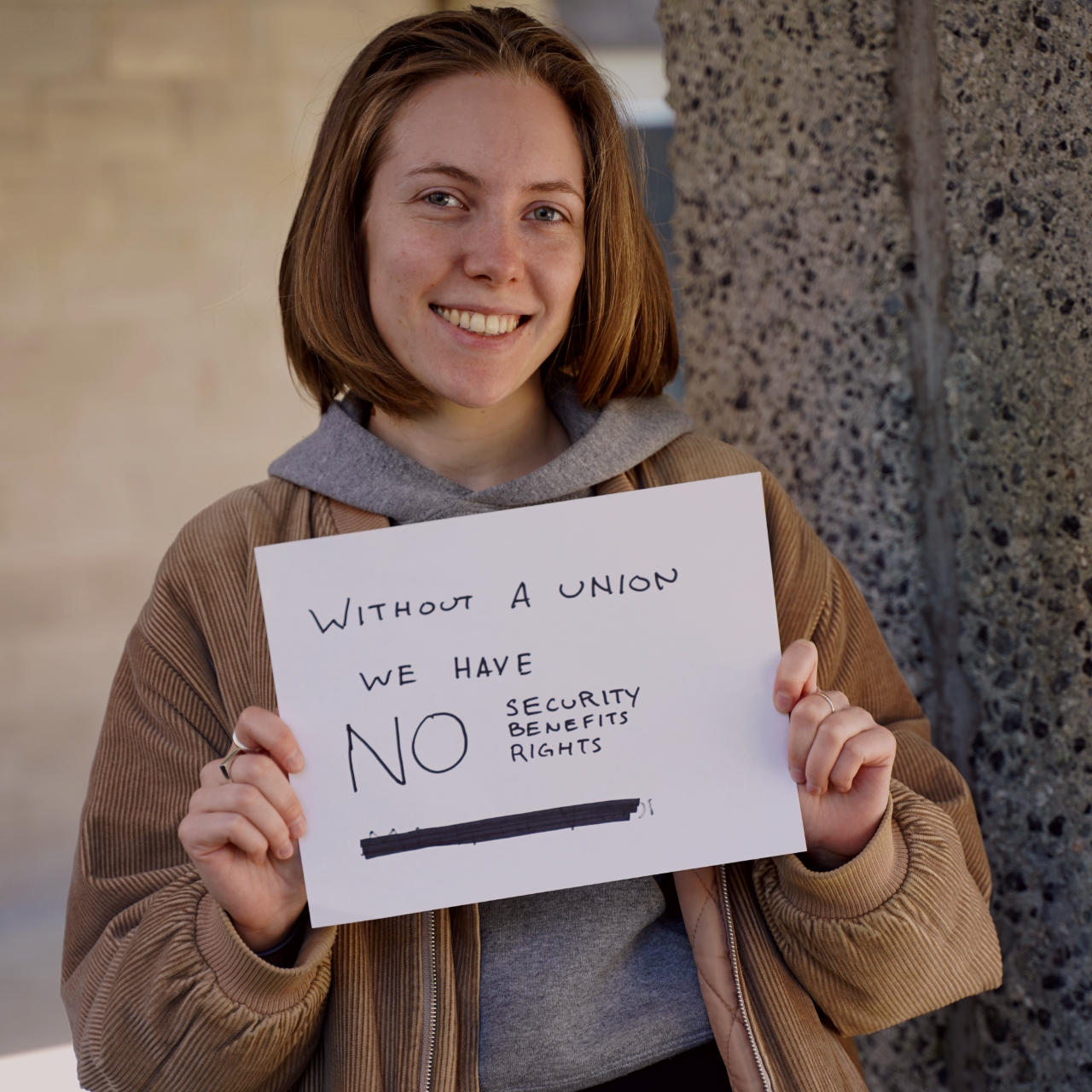These stories were anonymously provided by Research Assistants at SFU. They have been edited for clarify and length. If you have an RA story to tell – email us at tssu@tssu.ca! If you want to submit a story anonymously, you can fill out this form!
SFU & payroll
An RAship is like a blackbox
“I was surprised how informal the payment system is at SFU. As a TA you know what to expect. As an RA I went through weeks of non-payment as I continued working. It’s the clarity and protection of TA work that I appreciated most. It’s nice to have people in the union that can help you or a collective agreement to consult. Why is everything about being an RA so opaque? An RAship is like a blackbox.”
Uncertain pay as an RA
I didn’t get paid
I didn’t get paid for the entirety of my contract on this project, and only finally received a single lump-sum payment several months after the project had ended.
How not having a contract system hurts RAs
I cannot seek justice
During my RAship, I was given no instruction with regards to if there was any limitation on the number of hours I had to read the project’s research proposal, understand the concepts, and start the work. After I submitted my hours for my first week, my supervisor told me to not do any more work until I spoke to her. During our talk, she said she was very concerned with the amount of hours that I had taken and told me about the limited funds that she has which she cannot exceed. She said that she is not sure whether I will be able to do this work, and that I should try out a few case studies, check how much time I am taking, report back to her, and then we’ll see if this can work out.
This was an extremely stressful and anxiety-prone time for me, as just a week into this new job (which I thought was a sure shot thing), I was told that I might no longer be right for the work. The stability of having a job, a source of income, and the excitement of being able to prove myself and learn from this position all seemed broken. The most disappointing thing was that this was happening even before my supervisor had seen any of my work — I was judged even before getting a chance to submit my work. Moreover, I was disheartened and surprised by the lack of understanding from my supervisor. There was no basic understanding that any new person starting a new position will take a little time to grasp that work, that there is a training period involved, and that during this first week I was simply carefully reading the proposal so that I could gather all the information that I needed to fully understand what work was being expected of me. I wanted to do a good job. I wanted to be efficient. I was never given a contract for this position, so I have nothing to show anyone that proves that I am an employee. My pay and any other guidelines or expectations – there is no written record of any of this. If something goes wrong, I cannot seek justice as I have no proof of my position in the first place. I remember requesting a written document outlining my work so that I could refer back to it when needed. But I never received any such written document.
How benefits lessen academic financial burden
Ever-increasing tuition
I didn’t get involved with the Union until after my first year at SFU. I was a Teaching Assistant for my first two semesters and had taken advantage of some of the benefits offered to union members. Tuition deferment was a big one for me. I had just moved across the country to do a PhD and paying off ever-increasing tuition over the course of the semester significantly limited my financial burden. I was surprised to discover, in my third semester, that this wasn’t offered to RAs. I scrambled to find a TAship so I that could defer my tuition. I was lucky: I found one. But without that I would have been in trouble.
The crunch of RA Labour and how unions help
I WAS NEVER NOT AT WORK
I worked on three projects simultaneously – one project paid me via a grant, which combined (1) a lump sum of 1/2 my pay for the semester, and (2) a biweekly salary paying my other half with the expectation of a 30 hr work week. My second project paid me via a simple biweekly salary for an 8 hr work week. The third project was paid via an hourly wage.
The stress from having to navigate these uncoordinated projects — with each having very different work and expectations, as well as different principal investigators — was immense. The salaries from the first two projects were not sufficient to pay for my rent and living expenses. As a result, I had to work 30-40 hr/wk at my hourly wage job in addition to the first two projects. I spent 50-60 hours a week on campus. In terms of mental and emotional labour, I was never not at work.
From May until August this was my schedule. On August 20th, I got the news that the funding I was relying on to pay my tuition in the Fall would no longer be coming my way. On top of the obvious shock and horror at no longer being able to afford to go to school, I learned that the jobs I was working were contingent on grants only available to student hires. This meant that if I was not able to secure a student loan in 3 weeks to cover my tuition, not only I would be out of school, I would also be unemployed. I didn’t realize how precarious I was until I could see the bottom falling out. The union would not only have prevented this, but would have protected me from the predatory circumstances I fell into in the first place.
Protecting grad student education
The reason they are here in the first place
“Without any checks in place, it can be very easy for the time and energy demands that faculty place on TAs and TMs to impinge on graduate students’ own learning programs. This is a structural issue, and even the most well-meaning of faculty can do this, so having a union with the power to negotiate and enforce contractual employment obligations is important for protecting grad student workers and ensure they are able to successfully pursue their educations—which is, again, the overwhelmingly primary reason they are here in the first place.”
Protecting your right to safe work
I was being disciplined … for doing the right thing!
“One night during my PhD, I noticed a very unsafe condition in a laboratory space at SFU; a contractor had left a loaded high-pressure compressed gas cylinder with the regulator attached that was not secured and could potentially fall over resulting in a projectile that would blow through foot thick concrete walls, certainly killing anyone in its path. I ensured no one else was in the area and reported this safety incident via SFU’s protocol. I was soon called in for a meeting with SFU Managers and SFU safety personnel. Although they agreed the situation was unsafe, Safety Personnel stayed silent while Management berated me for reporting the incident. I was being disciplined for doing the right thing! I was told that if I ever reported an incident again, I’d be banned from working in the that large laboratory space which would end any possibility of finishing my PhD.
Before that meeting, I was a star student with a major NSERC scholarship who believed in SFU. After, I knew I could never live with myself working for the university and have been building an exit plan from academia. When my payment was late as a TA, on the other hand, TSSU got me a cheque from the university for the full amount within 72 hours. If I had the same protection when I was an RA, I would never been disciplined for reporting unsafe working conditions.”
Joining a directly-democratic union
I am TSSU
“Knowing what the union could offer against un-unionized working conditions was a big reason that I became involved with TSSU. When I did, I found a home. I participated in union meetings, and had my voice heard in important discussions over wages and working conditions. Because of my suggestions, the union even changed the way one of its committees worked! I am TSSU.”
